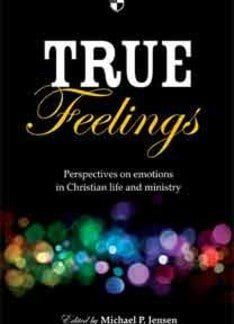True feelings — perspectives on emotions in Christian life and ministry
Michael P. Jensen (ed.)
Apollos (IVP), 288 pages, 14.99, ISBN: 978-1-84474-593-7
Star Rating: 3
There is much expression of emotion in the Bible — for example, the text for the sermon with which this book opens: ‘I yearn for you all with the affection of Jesus Christ’ (Philippians 1:8).
Equally, however, there is little analysis in Scripture of what ‘emotions’ are or the part they play in the spiritual life. Living in an age in which emotions are prominent and in which ‘emotional intelligence’ is often more highly valued than IQ, Christians need to explore the nature of this important aspect of human life.
This book contains eleven papers from a conference on this subject at Moore College, Sydney, in 2011. Many of the papers are quite technical, not perhaps for the ‘average’ Christian.
After Richard Gibson’s sermon on the above text, Andrew Cameron gives us a cultural overview of emotions, drawing deeply on Augustine for direction; Keith Condie offers a helpful introduction to the Puritans on the emotions, taking illustrations from Richard Baxter.
The next section is more theological, with a paper from Gerald Bray on ‘Does God have feelings?’ Richard Gibson examines the emotional life of Jesus; David Hohne looks at the Spirit’s work in perfecting the emotions and Michael Jensen gives a theological anthropology of emotions.
Finally, we have a more pastoral emphasis. Rhys Bezzant looks at the Christian’s emotional life; Peter Bolt urges preachers to be sensitive to the emotional content of a text; David Peterson examines the expression of emotions in corporate worship, and Robert Smith analyses the importance of music for the emotional and spiritual life.
It is interesting to see how often giants of the past are referred to — Augustine, John Owen and Jonathan Edwards particularly.
Edwards’ Religious affections is cited frequently. His balanced approach (even, for example, on music, whose function, says Edwards, is both to excite and express the affections) has probably not been bettered.
The present volume is a useful introduction to a wide range of issues on this important subject, and would be doubly useful if it encourages people to read Augustine, Owen and Edwards for themselves.
Mostyn Roberts
Welwyn




